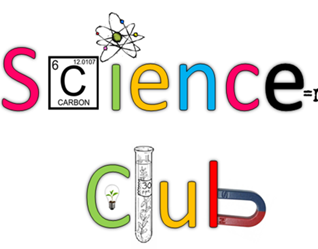Science
The Science Department believes that our subject is a fundamental part of everyday life essential to our understanding of the world. The overarching intention of Science is to provide students with a rewarding and productive learning experience that leaves them with a lasting positive view of Science and its contribution to society.
The Science Learning Pathway consolidates and builds on prior learning from Key Stage 2. The Key Stage 3 programme of study focuses on developing essential content and skills, introducing and revisiting topics across 3 years to help to create engaging lessons and prepare learners for the demands of GCSE Science.
‘Big Ideas’ interlink topics with Key Stage 3 and 4 programmes of study. This Learning Pathway aims to support the development of transferrable life and employability skills.
How you can support your child’s learning in Science?
- Question your child on what they have learnt in their Science lessons. How does it relate to the real world?
- Ask them how the topics in their Science lessons will support them in getting a job in the future.
- Encourage them to watch the news regularly to keep up to date with current scientific developments. Ask them how these developments link to their learning in their Science lessons.
This link will take you to a range of resources to support the curriculum- Useful Science Links
Key Stage 3
The Key Stage 3 science curriculum aims to ensure that all pupils:
- develop scientific knowledge and conceptual understanding through the specific disciplines of biology, chemistry and physics
- develop understanding of the nature, processes and methods of science through different types of science enquiries that help them to answer scientific questions about the world around them
- are equipped with the scientific knowledge required to understand the uses and implications of science, today and for future employment.
| Yr 7 Units of Work | Yr 8 Units of Work | Yr 9 Units of Work |
|---|---|---|
| Cells | Diet & Exercise | Infectious Disease |
| Material Science | Solubility, Chemical & Change | Weathering & Erosion |
| Forces | Motion | Waves - Light |
| Inheritance & Organisation | Waves - Sound | Periodic Table |
| Substances & Mixtures | Biochemistry | More Electrical Circuits |
| Sound & Light | Chemical Reactions | Fuel Uses & Costs |
| Solar System and Beyond | Magnetism | Biodiversity & Human Impact |
| Variation | Acids& Alkalis | Rock Changes - Earth Resources |
| Health & Disease | Interdependence of Organisms | Floating & Sinking |
| Atoms, Elements, & Compounds | Evaporation & Water Cycle | Adaption & Evolution |
| Designing Materials | Energy & Reactions | Cell Biology |
| Heating & Cooling | Forces | Inheritance and the Genome |
| - | Static Electricity | Interdependence of Organisms & Classification |
| - | - | Atomic Structure & Periodic Table |
| - | - | Bonding |
| - | - | Energy & Moving Particles |
| - | - | Measuring and Calculating Motion |
Key Stage 4
The GCSE Science course is based on the Key Stage 4 Programme of Study for Science. Students are given the opportunity to study either Combined Science: Trilogy or Separate Sciences. This qualification is linear meaning that students will sit all their exams at the end of the course.
The content is split into units relevant to students in their everyday life and the specification allows the opportunity to explore work-related learning in science where appropriate.
Content overview (Examination Board AQA):
Paper 1: Biology 1 (Foundation/Higher)
1. Cell biology
2. Organisation
3. Infection and response
4. Bioenergetics
Paper 2: Biology 2 (Foundation/Higher)
5. Homeostasis and response
6. Inheritance, variation and evolution
7. Ecology
Paper 3: Chemistry 1 (Foundation/Higher)
8. Atomic structure and the periodic table
9. Bonding, structure, and the properties of matter
10. Quantitative chemistry
11. Chemical changes
12. Energy changes
Paper 4: Chemistry 2 (Foundation/Higher)
13. The rate and extent of chemical change
14. Organic chemistry
15. Chemical analysis
16. Chemistry of the atmosphere
17. Using resources
Paper 5: Physics 1 (Foundation/Higher)
18. Energy
19. Electricity
20. Particle model of matter
21. Atomic structure
Paper 6: Physics 2 (Foundation/Higher)
22. Forces
23. Waves
24. Magnetism and electromagnetism
8. Space physics (Separate physics only)
Wider Curriculum
The Science curriculum is enriched through a range of activities each year including;
- National British Science week
- Visits to/from local universities & colleges including STEM careers talks
- Yr 7 & 8 Science club
- STEM visits

Year 7, 8 & 9Science Club
Mr Harding & Miss Boyd are running a Year 7, 8 & 9 Science Club every Monday at 2.45pm in lab 1.
If you wish to know more information about the Science Club then see Mr Harding or Miss Boyd.
Curriculum Support
Please find below all the support documents you need for Science.
Useful Links
https://nationalcareers.service.gov.uk/job-categories/science-and-research
https://www.sciencebuddies.org/science-engineering-careers
https://targetcareers.co.uk/career-sectors/science
Key Stage 3 Curriculum Support
https://www.bbc.co.uk/bitesize/subjects/zng4d2p
https://classroom.thenational.academy/subjects-by-key-stage/key-stage-3/subjects/science
https://app.senecalearning.com/classroom/course/419c7523-d408-4bc7-9b96-f7f12abdacae
Key Stage 4 Curriculum Support
https://classroom.thenational.academy/subjects-by-key-stage/key-stage-4/subjects/biology
https://classroom.thenational.academy/subjects-by-key-stage/key-stage-4/subjects/chemistry
https://classroom.thenational.academy/subjects-by-key-stage/key-stage-4/subjects/physics
https://app.senecalearning.com/courses?Price=Free&Subject=Combined+Science&Exam+Board=Edexcel
https://www.pearson.com/uk/learners/secondary-students-and-parents/learners-catch-up-gcse.html
GCSE Specification
Separate Science
Combined Science
Careers
https://nationalcareers.service.gov.uk/job-categories/science-and-research
https://www.sciencebuddies.org/science-engineering-careers
https://targetcareers.co.uk/career-sectors/science
Wider Curriculum


